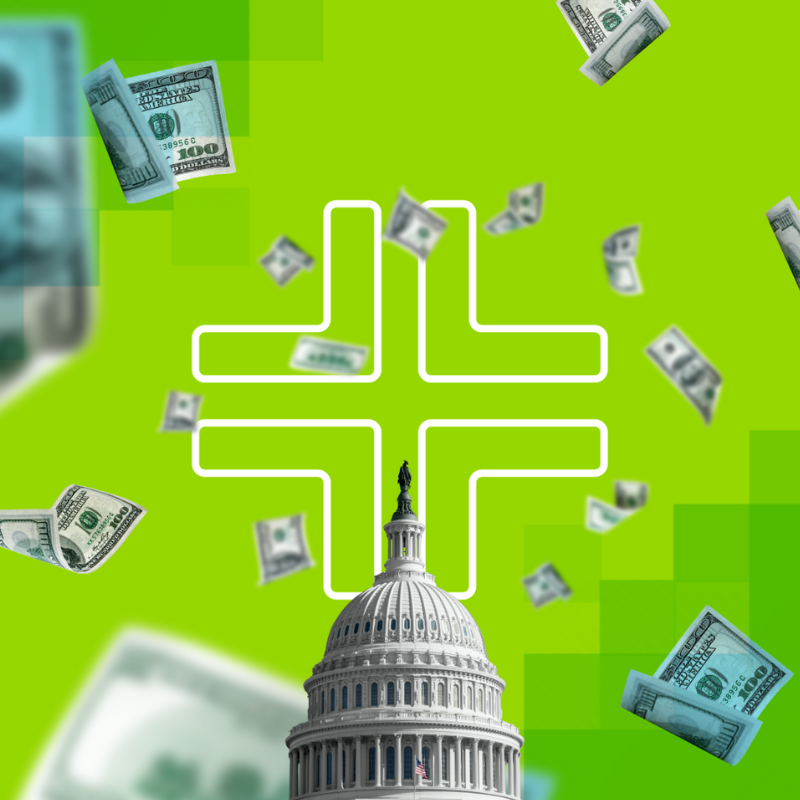The One Big Beautiful Bill Act (OBBBA) introduces sweeping reforms to U.S. tax policy, with far-reaching implications for businesses and investors in the CleanTech sector. While the bill aims to stimulate innovation and economic growth through enhanced tax incentives, it also includes provisions that could significantly hinder progress in CleanTech development.
Reforming Section 174: Research and Experimental Expenses
Under the previous law, beginning in 2023, businesses were required to capitalize research and experimental (R&E) expenses and amortize them over five years for domestic activities, or 15 years for foreign ones. This created cash flow challenges for highly profitable companies and those with expenses driven by research and development, because it delayed the financial benefits of investing in innovation by increasing taxable income.
The OBBBA reverses this policy by permanently reinstating the immediate deduction of domestic R&E expenses for tax years beginning after December 31, 2024. Businesses can now deduct these costs in the year they are incurred. This could offer immediate tax relief and improve liquidity, allowing CleanTech startups to focus on faster prototyping, testing, and deployment of clean technologies.
The OBBBA also introduces flexibility in R&E expenses by allowing businesses to elect to capitalize and amortize these expenses over a minimum of five years. Companies can accelerate the deduction of previously capitalized and unamortized R&E expenses from 2022, 2023, and 2024 over a one- or two-year period starting in 2025. This provision could prove helpful for managing tax liabilities during transitional years.
Small businesses with gross receipts of $31 million or less receive special consideration under the bill. They can retroactively expense domestic R&E costs for tax years after December 31, 2021, provided they make the election by July 4, 2026. However, the requirement to capitalize and amortize foreign R&E expenses over 15 years remains unchanged. Many CleanTech companies fall under the $31 million gross receipts threshold, so the ability to retroactively expense R&E costs can provide immediate tax relief, freeing up resources for hiring, scaling, and commercialization.
Enhanced Qualified Small Business Stock (QSBS) Incentives
The OBBBA also makes significant updates to the QSBS provisions, which are designed to encourage investment in early-stage companies. For stock issued on or before the OBBBA, QSBS benefits applied to stock issued before a company’s aggregate gross assets exceeded $50 million. Also, investors could exclude gain in an amount equal to the greater of $10 million or 10 times their basis, provided the stock was held for more than five years.
The OBBBA expands the QSBS provisions for stock issued after July 4, 2025. Under the new law, the aggregate gross asset threshold is increased to $75 million, with indexing for inflation beginning in 2027. This change allows more shareholders to qualify for the benefits of QSBS treatment. The new law also introduces a tiered exclusion system:
- Stock held for at least three years qualifies for a 50% exclusion.
- Stock held for at least four years qualifies for a 75% exclusion.
- Stock held for at least five years qualifies for a complete 100% exclusion.
This could mean significant savings for shareholders that were unable to take advantage of the QSBS exclusion because of the five-year holding period requirement.
Additionally, the cumulative amount of the per-issuer limitation is raised to $15 million for stock acquired on or after July 5, 2025, and it is also indexed for inflation. For married taxpayers, the limit is $7.5 million (or less, for shorter holding periods) per spouse, providing new opportunities for joint investors.
The OBBBA makes QSBS more attractive to investors to fuel growth in the startup ecosystem. This could incentivize venture capital and angel investment in CleanTech startups. This could be especially impactful for capital-intensive sectors like renewable energy, battery storage, and carbon capture.
Potential Downsides for CleanTech
The OBBBA also presents some challenges for the CleanTech sector:
- CleanTech companies engaged in global research collaborations could be limited in their ability to scale innovations internationally because the bill continues the requirement to capitalize and amortize foreign R&E expense over 15 years.
- QSBS enhancements may inadvertently favor software and biotech startups.
- No targeted incentives for manufacturing and infrastructure deployments.
The bill also reduces or eliminates several personal tax credits related to CleanTech consumer incentives, such as:
- Elective vehicle (EV) credits.
- Residential energy efficiency upgrades.
With less consumer demand for clean technologies, even well-funded CleanTech firms may struggle to achieve scale or attract investments. Meanwhile, early-stage CleanTech firms may face an uphill battle competing against more mature industries or fossil fuel incumbents.
Get the Latest Tax and Legislative Developments
Withum’s National Tax Policy and Legislative Updates Resource Center is your go-to source for timely updates on tax law and legislative changes. Our team is closely monitoring sweeping tax reform changes, shifting tariffs and tax industry updates, delivering in-depth analysis and actionable insights.
A Mixed Outlook for CleanTech
The OBBBA brings both opportunities and challenges to CleanTech. Small and mid-sized CleanTech companies working on new technologies could benefit from the changes to Section 174 and QSBS rules. However, continued amortization requirements for foreign R&E expenses and the rollback of consumer-facing CleanTech incentives could reduce domestic market demand. Withum’s CleanTech Services Team can help you navigate the benefits and challenges of these new policies.
Authors: Matthew Pinto, CPA | [email protected] and Melissa Roth, CPA, Partner | [email protected]
Contact Us
For more information on this topic, please contact a member of Withum’s CleanTech Services Team.






